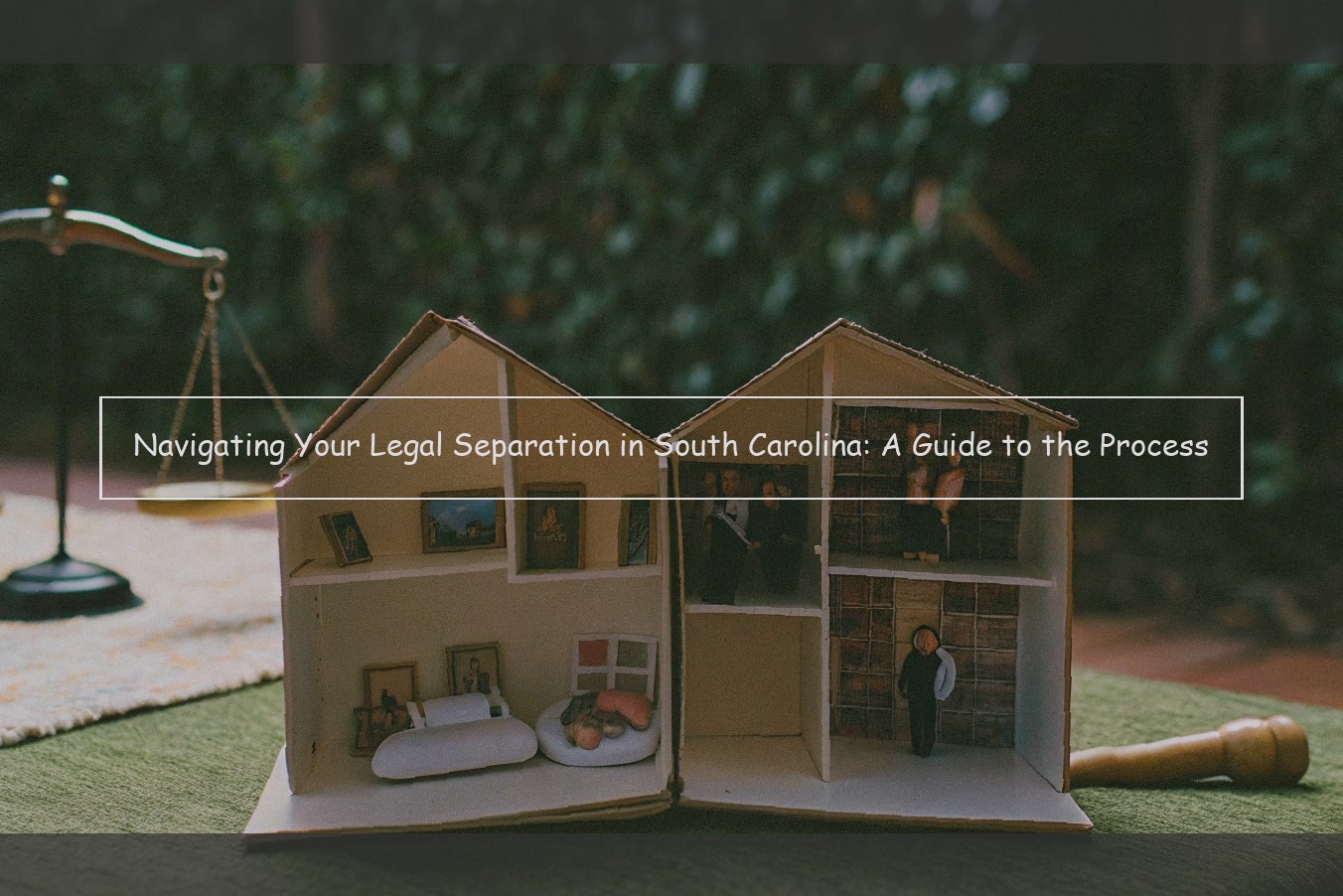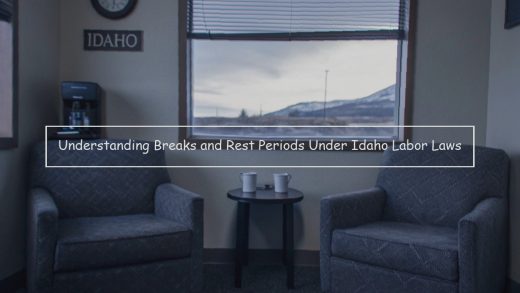
The Basics of Legal Separation in South Carolina
A legal separation in South Carolina refers to a court-recognized period of time when both spouses consent to live apart without formally divorcing. Unlike divorce, which provides a pathway to remarry, a legal separation allows parties to resolve specific issues that the parties agree to, including distributing property, establishing child custody, and determining alimony. The formal legal separation process in South Carolina is a unique procedure. In this state, unlike many others, "legal separation" is not a legal status; rather, it’s a term describing a period of time during a case in which spouses agree to live separately but still have many established legal rights to one another as outlined in the Prenuptial Agreement, Separation Agreement, or other marital agreement.
Generally speaking, there are three important elements to understand about this process:
In South Carolina, the term "separation" has a legal definition . A legal separation is a period of time when the parties are residing separate and apart without sexual intercourse. It may occur when parties have lived in separate residences pursuant to a Mutual Consent Separation Agreement (MCMA) for at least one year and are in such agreement to prove the "lived separate and apart" element. Another unique South Carolina term in the family law lexicon is "four year separation," which essentially means that, for four consecutive years, spouses have lived separate and apart, without sexual intercourse and without a claim for divorce, pursuant to a mutual consent separation agreement. A four year separation terminates the marriage without a court order. In a four year period without divorce or cohabitation, the parties may avoid having to file a no-fault divorce action concluding that the parties have been living separate and apart for at least one year.
Who Can Get a Legal Separation?
In South Carolina, legal separation is available to any married couple – regardless of the length of their marriage, geographic location, or socioeconomic status – who no longer wish to live together as husband and wife and are seeking a legal solution with more structure than a divorce. So long as they meet the jurisdictional requirements to file in a given county, and so long as they have lived separate and apart (either in the same domicile — i.e., having an agreement to be separated — or a different domicile) for a continuous period of one year, either spouse can file a complaint to obtain a divorce from bed and board, or legal separation. If you and your spouse have a child under the age of 18, or if either of you is currently pregnant, however, you may not be eligible for a legal separation. In these circumstances, you can only file for an uncontested divorce, which is typically more time-consuming and complicated.
How to File for a Decree of Separate Maintenance
If you do not intend to get a divorce, yet you feel your marriage is over, you can ask a South Carolina Family Court to grant you a judicial decree of separate maintenance. The divorce process in this state also provides this option, since it technically represents a divorce action. In South Carolina courts, a decree of separate maintenance equates to legal separation. The following provides a look at the steps involved with this option.
Requirements
Under S.C. Code Ann. §§ 20-3-1 through 20-3-690, you must meet the requirements for filing a decree of separate maintenance. You must demonstrate:
• The grounds for relief.
• An inability to reconcile your differences.
• Specific reasons for asking for a decree of separate maintenance, such as fear of physical harm or loss of access to children or income.
Process
You would first file a divorce action either with a family court or circuit court. In a small number of instances, you might be able to make your case at a magistrate’s court. You would then proceed with a separate maintenance claim by filing a motion for temporary relief pending final hearing if you believe you have an immediate need for separate maintenance. You or your attorney would begin collecting evidence and preparing for the hearing if the judge grants the motion. That evidence could include depositions, affidavits, certificates or stipulations. For example, you and your spouse might give evidence through sworn written testimony (affidavits) that establishes your circumstances and support your claims. A judge would declare your ability to petition the court on your own as indigency if you cannot afford an attorney or the court fees. You could then proceed to request a summary judgment from the court if you believe the spouse will not respond to the lawsuit.
Outcome
The court generally issues a temporary order to determine how your separate maintenance will proceed. The decision includes proven financial contributions to the asset under dispute. For example, if the asset is a home, the judge might order you and your spouse to continue sharing responsibility for the mortgage, insurance and property taxes as just a couple of the potential outcomes.
Spousal & Child Support Considerations
Spousal support, also known as alimony, is available in South Carolina during a legal separation and can be awarded in either the separation agreement or by the court. In determining an award of spousal support, the court considers both parties’ marital misconduct, if any. The marital misconduct weight is much higher in a legal separation than in a divorce case. The remaining factors that the court considers are common in a divorce case and include: the length of the marriage, the age and health of the parties, the income of each party, how the marital property was distributed, the contribution of one party to the education or training of the other party, and the use and expenditures of marital funds. The court may also consider the parties’ lifestyle and standard of living, tax consequences to both parties, and various other factors.
For child support, South Carolina courts will first enforce the Mandatory Guidelines for Child Support. These guidelines are based on the parties’ net incomes, with various deductions applied to arrive at a net monthly income. Deductions include mandatory withholding for income tax, social security tax, and mandatory pension contributions. The guidelines also include deductions for health insurance and work-related childcare costs. Once the guidelines are applied to a case, the court has broad discretion when deciding whether to deviate from the guidelines and to potentially reduce the amount of child support to be awarded. Examples of deviations include ostensible income of a voluntarily underemployed party, agreements between the parties regarding a different child support amount, excessive parenting time with a non-custodial parent, and various other factors.
Division of Assets and Debts in Legal Separation
Similar to divorce, equitable distribution principles apply even in legal separations. However, rather than having separate property and marital property as you do in a divorce case, the process is similar. Generally, separate property is property acquired before the marriage or during the marriage by gift or inheritance. Even if it is marital property, if there has been an agreement on its distribution prior to the filing of the separation action then it would be considered separate property as an intent to treat property acquired during a marriage as separate property may be shown .
Otherwise, a trial court in a legal separation case will consider the marital property and determine whether the property was acquired during the marriage and what the value of the property is. The distribution of the property is generally not fifty/fifty but rather the trial court will consider the guidelines outlined in the Family Courts Act.
Legal Rights & Responsibilities of a Separated Spouse
Similar to marriage, legal separation creates a host of legal rights and duties between spouses. Those rights and responsibilities, however, go away once the legal separation ends (whether when the parties reconcile or one spouse files for divorce). For married spouses, legal separation impacts financial issues, healthcare benefits, living arrangements, and even taxes. When spouses separate, but are not yet legally separated (there is a distinction), the legal "default" rules for married spouses still apply. In other words, just because spouses are separated, but not legally separated, does not mean they get special privileges or exemptions under the law. For example, health insurance providers will not treat estranged spouses as "legal dependents." Moreover, most medical providers are also loathe to treat estranged spouses as "legal dependents." In the eyes of a provider, you are either with your spouse, or you are not. Thus, being legally separated has benefits (and burdens) in relation to surviving legal dependents/beneficiaries on your health plan. A husband that wants to terminate healthcare benefits to his wife when they are estranged, but not legally separated, may find it impossible to do so. Conversely, the wife cannot add her husband onto her health plan when they are estranged, but not legally separated. Likewise, estranged spouses are unlikely to be treated as "next of kin" for ER purposes, or even be able to gain access to one another’s hospital rooms in the event of an emergency. They cannot necessarily pick up prescriptions or receive medical information. Until spouses are legally separated, they are merely living apart and have not been granted any of the rights and privileges of spouses that are separated. In South Carolina, spousal benefits from a pension are NOT available for spouses that are estranged, but not legally separated. However, if a spouse is awarded spousal support, that former spouse will be entitled to a portion of the other’s pension plan. See Ella V. Ziegler v. Ziegler, 394 S.E.2d 731 (S.C. Ct. App. 1990). Also, while spouses are estranged, but not legally separated, retirement accounts are NOT subject to division by a court in equitable distribution action. Separate debts accrue AFTER the parties are separated (not before). You cannot sue your spouse for adultery unless you are separated and/or divorced. The bottom line is that until spouses are legally separated, they continue to function as a legal unit. This same reality applies to a party’s income taxes. If estranged spouses file separate income tax returns, they can obtain substantial tax penalties for doing so. However, if a husband and wife are legally separated, each party can legally file separately. Thus, the need to be legally separated creates a plethora of consequences that folks should consider before rushing to sign some separation agreement and/or moving out. Spouses need to understand what divorce may mean for them in the short-to-mid term, particularly if they’re awaiting a final court decision related to their separation. Unbeknownst to many in the public, being legally separated generally does NOT allow either husband or wife to obtain early access to government benefits (such as social security or medicare benefits, where applicable). Agencies and other legal government entities are unlikely to treat someone as "single in terms of income" until they are legally separated. It is a common scenario where some parties separate early and struggle financially in the interim – only to later find out that they cannot get "government aid" until they are legally separated, at which point funds are insufficient to make ends meet. There are many laws, regulations, and rules that apply to legal separation, many more than this blog post can convey. For example, there are different laws that apply to temporary orders for support and alimony. Later posts will cover these topics in more detail. But for now, know that there are lots of consequences to getting legally separated – many of which are not obvious to the general public. Spouses absolutely need to educate themselves about such nuances prior to separating.
Seeking an Attorney to Handle Your Separation
Seeking legal assistance when pursuing legal separation is an important part of ensuring that your interests are protected. Confusion surrounding the legal separation process, like the difference between a legal separation and divorce, can cloud the entire process and prevent you from making the best decisions regarding your future. An experienced legal advisor can help you navigate the process, avoid common pitfalls, and make informed decisions.
When searching for an attorney, it’s best to focus on experience, skill, and confidence. Ask friends and family for personal recommendations or look online for feedback from clients . Spend time on multiple consultations, where you will get a feel for their ideas and process. While all legal representation has a duty to support you, you should feel comfortable sharing personal information and confident that your attorney will act in your best interest.
Your lawyer can assist you with the entire process, from creating a separation agreement to filing appropriate paperwork with the court. Once your separation agreement is finalized, you are legally unmarried – but this doesn’t mean that your work is done. You can still count on your qualified separation lawyer to assist with other issues associated with separating or divorcing.



